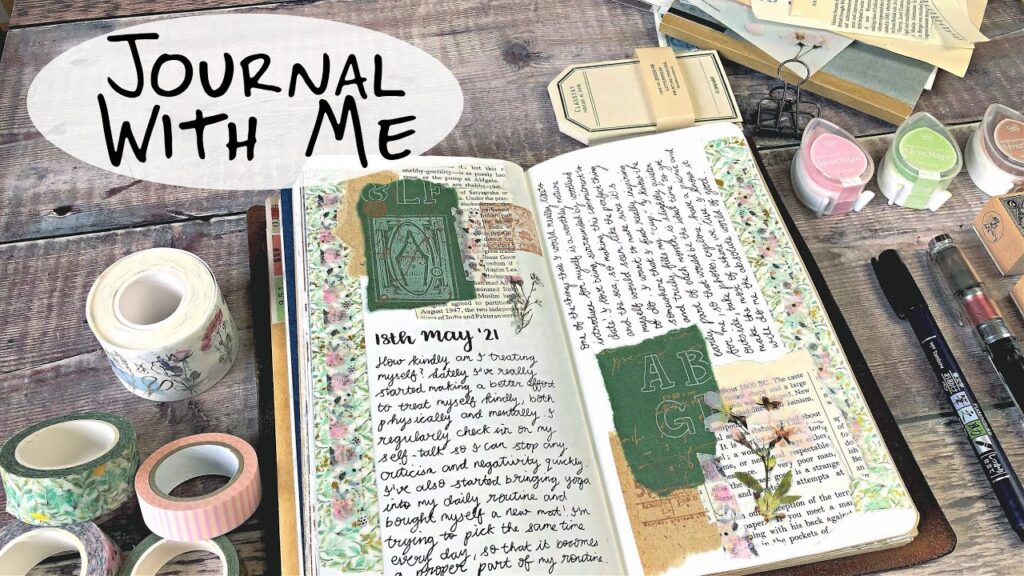
Journaling is a timeless practice of self-expression that helps to organize thoughts, process emotions, and foster self-awareness. By putting pen to paper, you create a safe space to explore your innermost feelings and gain clarity. This therapeutic habit promotes mental well-being, encourages personal growth, and can serve as a cherished record of your journey.
Why Journaling Matters
In the hustle and bustle of life, we often carry an emotional weight that we don’t know how to unload. That’s where journaling steps in. It’s a private space where no one judges you, where every thought is valid, and where you can be unapologetically yourself. Here are a few reasons why journaling is essential:
- Mental Clarity: Writing helps you organize chaotic thoughts and make sense of your emotions.
- Emotional Release: It acts as a safe outlet for pent-up feelings, reducing stress and anxiety.
- Self-Discovery: As you write, you’ll uncover patterns in your thoughts and behaviors, which can lead to profound insights.
- Memory Preservation: Your journal becomes a time capsule, capturing moments you might otherwise forget.
Types of Journaling
Journaling isn’t one-size-fits-all. There are various styles, and you can choose what resonates with you:
- Gratitude Journaling: Focus on the good things in your life, no matter how small. Each day, jot down three things you’re grateful for.
- Bullet Journaling: A creative way to track your goals, habits, and tasks. It’s structured yet flexible, allowing you to add
- artistic flair if you’re inclined.
- Stream-of-Consciousness: Let your thoughts flow without worrying about grammar or coherence. It’s liberating and helps you tap into your subconscious.
- Dream Journaling: Record your dreams and interpret their meanings. It’s fascinating and can reveal what’s brewing in your mind.
- Art Journaling: Combine drawings, sketches, or collages with words. Perfect for those who find art a better medium of expression.
- How to Begin Journaling
- Starting a journal can feel intimidating, but remember, my child, there’s no right or wrong way to do it. Here’s how you can begin:
- Choose Your Tools: Select a notebook or digital app that excites you. A beautiful journal might make you more eager to write.
- Set a Routine: Dedicate a specific time of day to journal, whether it’s in the morning to set intentions or at night to reflect.
- Start Small: Write for five minutes a day. Over time, you’ll naturally want to write more.
- Prompts Can Help: If you’re unsure what to write about, use prompts like “What made me smile today?” or “What’s troubling my heart?”
- Be Honest: Write without fear or filters. This is your space, and it’s okay to be vulnerable.
- Benefits of Journaling
- Let me tell you, the rewards of journaling are like planting seeds in a garden; with time and care, they blossom beautifully:
- Stress Reduction: Pouring out worries can feel like lifting a weight off your chest.
- Improved Mental Health: Journaling has been shown to help with depression and anxiety by fostering positive thinking and problem-solving.
- Enhanced Creativity: Writing stimulates your brain and can ignite creative ideas you didn’t know you had.
- Overcoming Common Barriers
- Time Constraints: If you’re busy, try micro-journaling—writing just a few lines a day.
- Fear of Judgment: Remember, no one else has to read your journal. It’s for your eyes only.
- Perfectionism: Let go of the need for perfect grammar or neat handwriting. This isn’t an essay; it’s an expression of your soul.
- Creative Ways to Journal
- To keep journaling exciting, mix things up:
- Add Photos: Paste pictures that resonate with your mood or memories.
- Use Colors: Highlight important entries or doodle in the margins.
- Incorporate Quotes: Write down inspiring quotes and reflect on their meaning.
- Make Lists: List your dreams, goals, favorite books, or even songs that touch your heart.
- Journaling and Emotional Healing
- Oh, my dear, life isn’t always easy, but journaling can be a comforting companion in tough times. Writing about your struggles helps you process pain and understand your emotions. It’s like talking to an old friend who listens without interrupting. Over time, you’ll notice a sense of relief and even gratitude for the lessons learned.
- Tips for Consistency
- Create a Ritual: Light a candle or play soothing music to make journaling a cherished ritual.
- Reward Yourself: Celebrate milestones, like completing a month of daily journaling.
- Stay Flexible: If daily writing feels overwhelming, aim for three times a week.
- Be Kind to Yourself: Missing a day isn’t the end of the world. Pick up where you left off.
- Q&A Section
- Qes u1: How often should I journal?
- Ans: There’s no set rule. Daily journaling is ideal, but even once or twice a week can be beneficial. Find a frequency that feels natural to you.
- Ques 2: Can journaling replace therapy?
- Ans: Journaling is therapeutic but not a substitute for professional help if needed. It’s a complementary tool to enhance well-being.
- Ques 3: What if I don’t know what to write?
- Ans: Start with a prompt, describe your day, or simply write, “I don’t know what to write,” and let the words flow from there.
- Ques 4: Is it okay to use digital apps for journaling?
- Ans: Absolutely! While handwritten journals have their charm, digital apps offer convenience and features like prompts and organization.
- Ques 5: How do I keep my journal private?
- Ans: Use a lockable notebook or password-protected app. Remember, it’s your personal space, so guard it as you see fit.